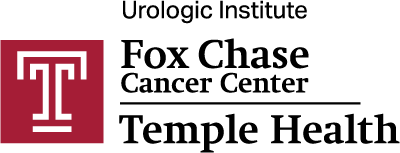

The Tracheobronchomalacia (TBM) Program at the Temple Lung Center offers patients with this rare and often under-recognized condition, a multidisciplinary medical team led by specialty-trained thoracic surgeon Charles Bakhos, MD, FACS. At Temple, diagnosis of TBM is made by airway CT scan and flexible bronchoscopy with forced exhalation. Treatment can include medical management, tracheobronchial stenting, or surgical stabilization of the airway by posterior splinting (tracheobronchoplasty).
About TBM
TBM is characterized by excessive collapse of the main airways due to a weakness of the cartilage itself or the back wall of the windpipe. TBM patients often have comorbidities, such as asthma or COPD, which make it harder to recognize airway collapse as a contributing factor to their symptoms. Inappropriate treatment for these comorbid conditions may precede eventual recognition of TBM by months or years. The cause of TBM—which occurs in 5–10% of patients with significant respiratory disease—remains largely unknown.
Multidisciplinary team
The Temple Lung Center offers a full complement of pulmonary specialists to care for patients with TBM. This team includes pulmonologists, thoracic surgeons, radiologists, sleep specialists, rehabilitation specialists and digestive disease physicians. Temple’s team-based approach to diagnosis and care includes radiological testing and physiologic assessment with pulmonary function testing. Initial management is often conservative and aimed at optimizing the medical treatment of concomitant respiratory conditions or acute exacerbations (inhalers, CPAP, mucolytics antibiotics when indicated). Other interventions may include tracheobronchial stenting. In cases of suspected reflux disease, a GI consultation will be ordered.
Why choose Temple
The Temple Lung Center has the only dedicated TBM Program in the Philadelphia region. The program’s philosophy is to treat the disease medically first and operate on a select subset of patients who cannot find relief otherwise.

Dr. Bakhos is a board-certified thoracic surgeon who specializes in complex lung and esophageal surgery, including caring for patients with tracheobronchomalacia. He completed a residency in Cardiothoracic Surgery at Beth Israel Deaconess Medical Center (Harvard Medical School), where he received significant exposure to TBM research and patient care. His goal at Temple is to help patients with TBM find the relief that often eludes them.
When and how to refer
TBM is difficult to diagnose since symptoms can vary depending on a patient’s age and severity of disease. Referral should be considered when other pulmonary conditions have been ruled out and symptoms such as the following persist:
- Unexplained shortness of breath
- Recurrent respiratory infections
- Chronic cough
- Secretion retention
- Respiratory failure
Common risk factors for TBM include smoking, COPD, GERD, obesity, chronic bronchitis, and even interstitial lung disease. There are also congenital forms of TBM.
Please call 800-TEMPLE-MED to discuss a case or arrange for a patient consultation. For inpatient transfers, please call 215-707-TRAN (8729).

